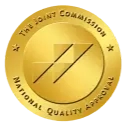Drug and Alcohol Detox Center
The tragic death of Major League Baseball player Tyler Skaggs on July 1, 2019, sent shockwaves through the sports world and beyond. At just 27 years old, Skaggs, a talented starting pitcher for the Los Angeles Angels, was found dead in his hotel room in Southlake, Texas. In the wake of his untimely passing, the circumstances surrounding Tyler Skaggs’ death sparked a broader conversation about addiction, professional sports, and the language used to discuss these complex issues. The subsequent release of Skaggs’ autopsy report further intensified scrutiny and reflection within the baseball community. Atlanta Detox Center is looking at what happened and what it all means.
What Happened to Tyler Skaggs?
On July 1, 2019, Major League Baseball player Tyler Skaggs, 27, a starting pitcher for the Los Angeles Angels, was found dead in his hotel room in Southlake, Texas. In the following weeks, Tyler Skaggs’ death made ripples through Major League Baseball. Teammates and players from other teams paid tribute to the pitcher, including a July 12 game in which everyone on the Angels wore Skaggs’ name and number.
Eventually, the medical examiner of Tarrant County, Texas, released Skaggs’ autopsy. It revealed that at the time of death, he had oxycodone, fentanyl, and alcohol in his system. Tyler Skaggs’ cause of death was ruled as “terminal aspiration of gastric contents,” meaning he choked on his own vomit while intoxicated. Skaggs’ death should make us ponder what kind of drug and alcohol treatment options are made available to MLB players.
The Response to Tyler Skaggs’ Autopsy
The Southlake police investigated Skaggs’ death immediately. According to a statement made at that time and released by his family through legal counsel, the investigation was tied to an unnamed Angels employee. In the statement, the family, grieving the loss of their son, said they were “heartbroken” to learn Skaggs had drugs in his system. They called it “completely out of character for someone who worked so hard to become a Major League baseball player.” The family said they were shocked to learn that their son’s drug use could involve an employee of the Los Angeles Angels. They vowed that “we will not rest until we learn the truth about how Tyler came into possession of these narcotics, including who supplied them.”
The Southlake Police Department, in collaboration with other agencies, worked to uncover the details surrounding Tyler Skaggs’ overdose death. The investigation was eventually tied to a former Los Angeles Angels employee, Eric Kay. This collaboration ultimately led to Eric Kay’s arrest and subsequent conviction for his role in distributing the drugs that resulted in Skaggs’ tragic demise.1
Skaggs’ family was and continues mourning his untimely death. They are entitled to express their heartbreak, sadness, shock, and anger. Unfortunately, their statement is an example of the kind of stigma that those with substance use disorder face each day. Asserting that drug use is “out of character” for someone who is accomplished and works hard implies those addicted to drugs don’t work hard.
The truth is that everyone – from students to professional athletes to CEOs – has the potential to fall victim to the clutches of substance abuse. Addiction doesn’t care what a person’s profession is or how passionate they are about it. We are all human, which means that any one of us can fall victim to this disease.
The Language of Addiction and Recovery
Harvard Medical School Professor of Psychiatry John Kelly is one of the creators of the Recovery Research Institute’s Addictionary. The Addictionary is an online glossary of addiction-related terminology, including words that are considered stigmatizing. In a 2017 article, Kelly told the Harvard Gazette that using the appropriate language to talk about addiction “goes beyond political correctness. It’s not just a matter of being nice. What we now know is that actual exposure to these specific terms induces this implicit cognitive bias. If you want to solve the problem, you want to remove barriers and obstacles.”
The Addictionary contains mostly terms that addiction treatment professionals use and focuses less on conversational phrases used by lay people. But imagine another Major League Baseball player who is living with addiction seeing the Skaggs family’s statement. It would be hard not to internalize the sentiment that addiction is “out of character” for a professional athlete, even if the facts don’t support that statement.
Since 2014, three MLB players, Oscar Taveras, Jose Fernandez, and then-recently retired Roy Halladay, all died from vehicle accidents that occurred while they were intoxicated. In 2015, pitcher C.C. Sabathia missed playing in the postseason when he checked himself into rehab for alcohol addiction. These are only a few highly publicized examples of how substance use has impacted or ended, the lives of talented athletes.
Negative Effects of the Stigma of Addiction
The stigma surrounding addiction is a pervasive societal issue that exacerbates the challenges faced by individuals struggling with substance abuse. This stigma often stems from misconceptions, fear, and judgment, leading to detrimental consequences for those affected.
Notable consequences of addiction stigma include:
- Barriers to Seeking Help: The fear of being stigmatized can prevent individuals from seeking the help they need to overcome addiction. This reluctance to reach out for support can delay or impede recovery efforts, resulting in worsening health outcomes and prolonged suffering.
- Social Isolation: Stigmatizing attitudes towards addiction can isolate individuals from their friends, family, and community. This social isolation can deepen feelings of shame and hopelessness, exacerbating the cycle of addiction and making it harder for individuals to break free from its grip.
- Employment Discrimination: The stigma associated with addiction can lead to discrimination in the workplace. Individuals with a history of substance abuse may encounter challenges in securing employment or face termination if their addiction becomes known. This can further perpetuate financial instability and hinder efforts to rebuild their lives.
- Limited Access to Healthcare: Stigmatization can also impact access to healthcare services for individuals struggling with addiction. Healthcare providers may hold biased attitudes or provide subpar treatment, leading to inadequate care and poorer health outcomes for those in need.
- Legal Consequences: Stigma can intersect with legal systems, resulting in harsher treatment for individuals with substance abuse issues. This may include disproportionate sentencing, limited access to diversion programs, and a lack of support for rehabilitation within correctional facilities.
The widespread stigma surrounding addiction not only impedes people’s recovery journeys but also reinforces societal beliefs and prevents development. It’s critical to combat this stigma with empathy, education, and support networks that put compassion and understanding first. By opposing stigmatizing beliefs and advocating for inclusion, we can establish a more encouraging atmosphere for people who are trying to kick their addictions and start over.
Atlanta Detox Treatment for You or Your Loved One
Even though we call athletes heroes, at the end of the day, they are people, just like you and I. They also have histories of experimenting with drugs. They drink alcohol and live with alcohol abuse, addiction, anxiety, and depression, and they can’t overcome these conditions without help. Many people are afraid to seek help for addiction to drugs and alcohol. These individuals will suffer through delirium tremens or maintain a buzz or high at work due to fear of losing respect if it was found out they entered into treatment. If you are struggling to stop drinking or using drugs, there is help.
The first step in treating alcohol and opiate use disorder is to end the physical addiction through the detox process. But no one should try to do this alone. Trying to stop drinking alcohol cold turkey, for example, is potentially life-threatening. At our Atlanta Drug Detox, medical professionals provide clients with top-of-the-line substance abuse and mental health treatment around the clock. We can help you lay the groundwork for the next level of treatment and your long-term recovery.
To find out if you need to detox from alcohol or detox from opiates, call to speak to a Georgia Detox Center admissions specialist today at 844-658-0927.
Source:







